Need a last-minute holiday or birthday gift?
Make the best DIY Body Powder you’ve ever seen with things you already have in your house. This talc-free formula uses ingredients are cornstarch or arrowroot, and baking soda.
You can leave it unscented, add essential oils, even use vanilla or peppermint extract!

Never be caught without a gift again!
We have a shelf in the closet for cool things we find all year to give as presents, but we never seem to have quite enough.
I hate to go out shopping at the last minute, so usually, I make a few cool presents ahead of the holidays instead.
Luckily, everyone always appreciates a gift made from the heart and this homemade body powder can be made in a couple of minutes with ingredients that are probably in your pantry!
What is the purpose of body powder?
If you are calm, cool, and collected – oh wait, that might have been a commercial I grew up with – lol. But body powder does help prevent rashes in adults or babies.
It keeps you dry on a humid day by absorbing excess moisture and protects those delicate inner thighs.
If I don’t have body powder available, what can I use?
That’s what this post is all about! Break out the cornstarch, baking powder, and if you have some peppermint baking extract or peppermint oil, you can even make your cornstarch body powder scented too.
It’s so much cheaper than buying fancy powder and you will never run out again after you learn to make DIY baby powder.
In a pinch, I’ve used plan cornstarch, arrowroot, or even tapioca starch as is. But you can dress it up a little for gifting.
Can I use baking soda as a body powder?
You might be using baking soda to deodorize your fridge in addition to baking some banana bread (another great gift btw).
It can be used as an alternative to baby powder, but it’s not as smooth as the other options listed above, so use it alone only if there’s no other option.
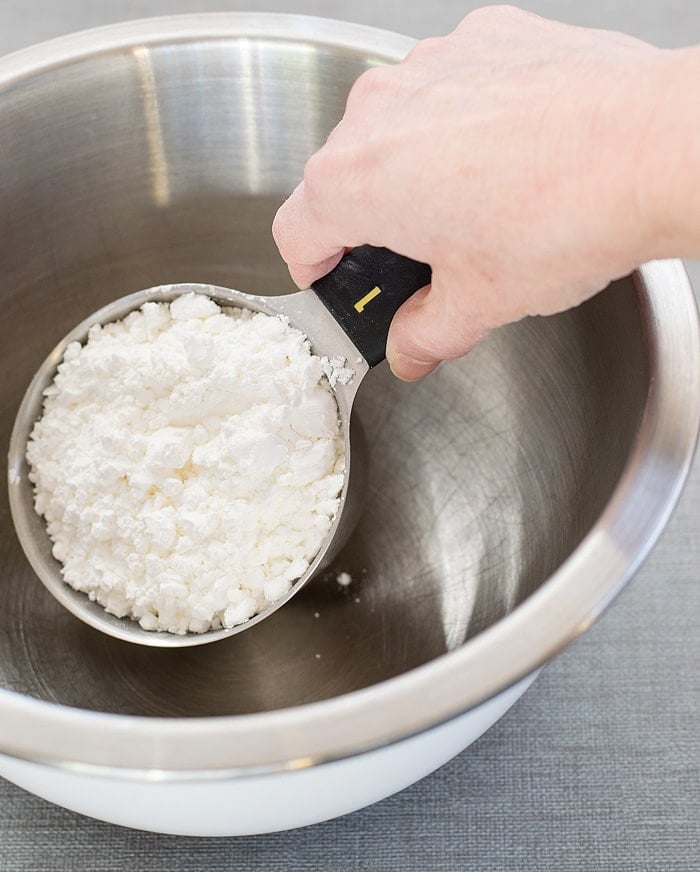
What ingredients so I have to have to make this homemade body powder recipe?
You just need simple ingredients that you may already have in your kitchen like corn starch, baking soda, and maybe some peppermint baking extract or you can grab an essential oil from the bathroom cabinet.
We are using natural ingredients, but make sure you don’t have an allergy to any of them. And because you are making this yourself you can switch things out as needed.
For example, if you are allergic to corn, use arrowroot or tapioca starch in place of the cornstarch.
What is arrowroot powder?
It is commonly referred to as flour or starch. Arrowroot powder is a powerful thickening agent, especially when adding texture and structure as you cook and bake delicious treats.
Natural body powder recipe
- Cornstarch, arrowroot powder, or tapioca starch
- Baking soda
- Essential oils (optional)
How do you make diy baby powder with essential oils?
It’s so easy to make. You add 2 cups of cornstarch or arrowroot powder as the base. Either one adds a silky texture that will make your skin feel amazing.
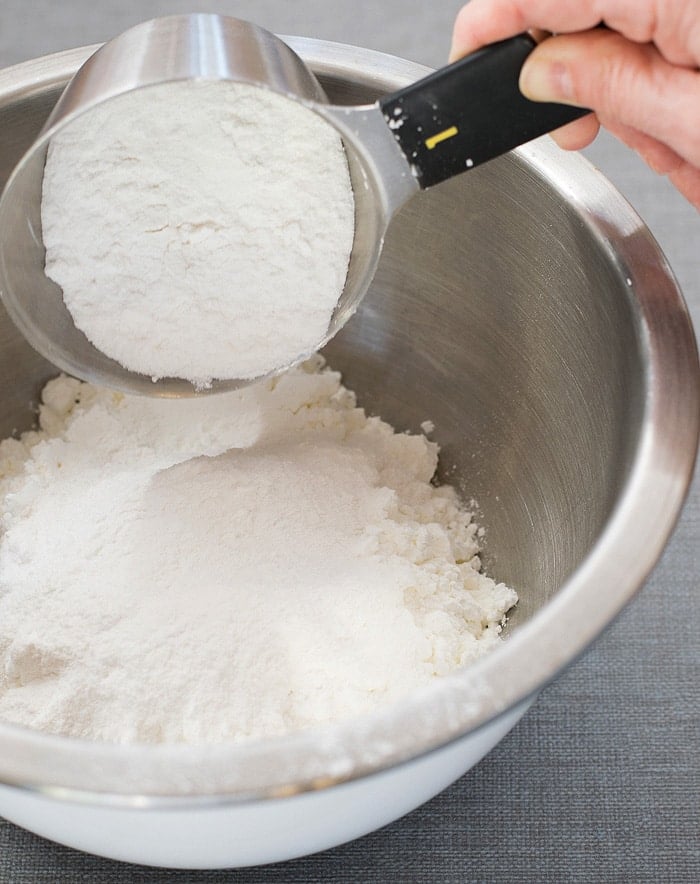
Next, add 1/2 cup of baking soda to act as a natural deodorant.
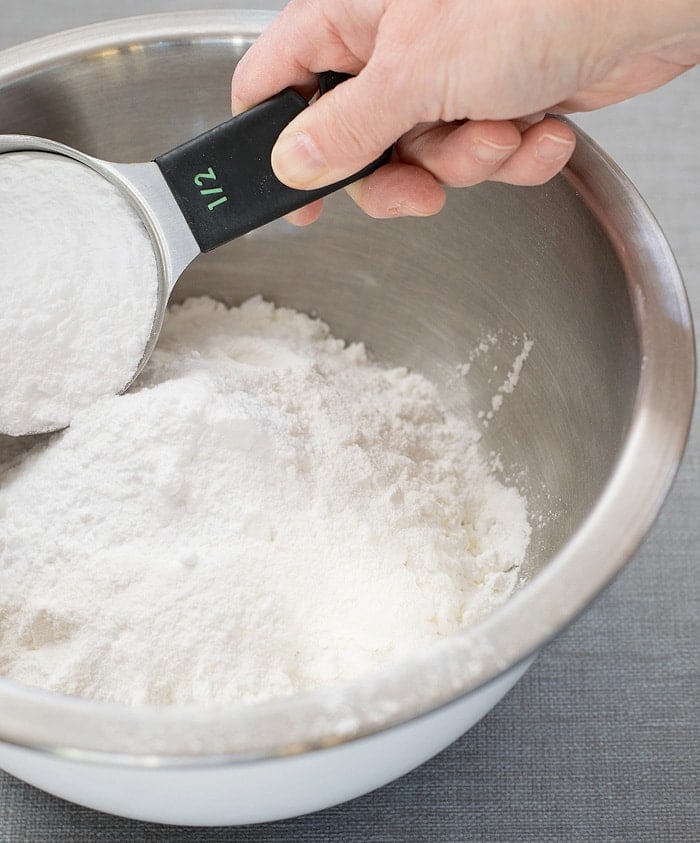
Lastly, add in the essential oils a few drops at a time until it’s a strong as you like it. I added in mint and eucalyptus because it’s a great unisex combo.
Mix well, then fill your jars.

What should I use for jars?
I got a set of glass spice jars that have the shaker lids and I have some Amazon choices for you – some even come with a funnel to make it easier to fill with your scented body powder.
Another great and inexpensive idea is to get large salt shakers from the thrift store. They are beautiful and already have holes in them.

How can I decorate DIY Body Powder for gifts?
You can add ribbons, stickers, or other decorations to dress them up more. Additionally, you can put them in small boxes and print out cutesy short messages from the heart.

Other DIY gift ideas you can find in your kitchen
Including variations on the natural powder recipe.
First, let’s not overlook the obvious you can use this great powder on all parts of your body.
You can use tea tree oil to help treat foot issues, instead of store-bought foot powders. It’s just as good as gold bond for personal care.
You can also use this blend as a dry shampoo if you have lighter colored hair. For dark hair use 1/2 cocoa powder mixed with 1/2 arrowroot powder instead!
The only use I would not use this as is a face powder. While it would help with excess oil, the lighter color will look odd and some essential oils are too harsh for that sensitive skin area.

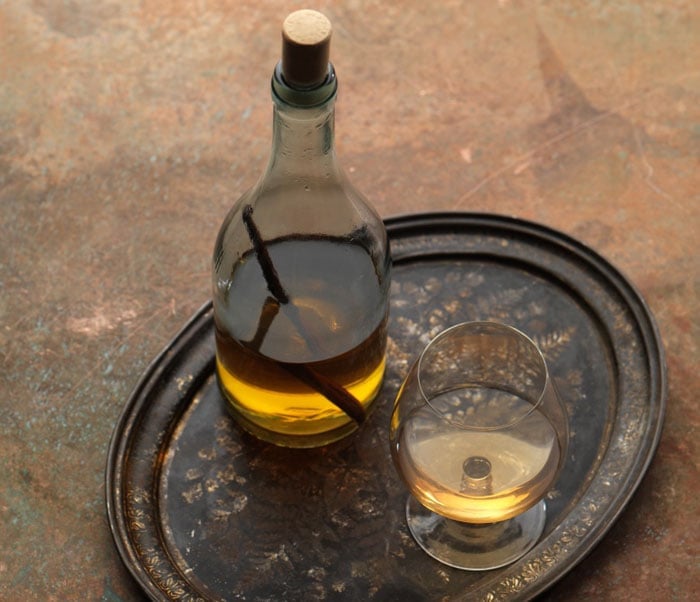
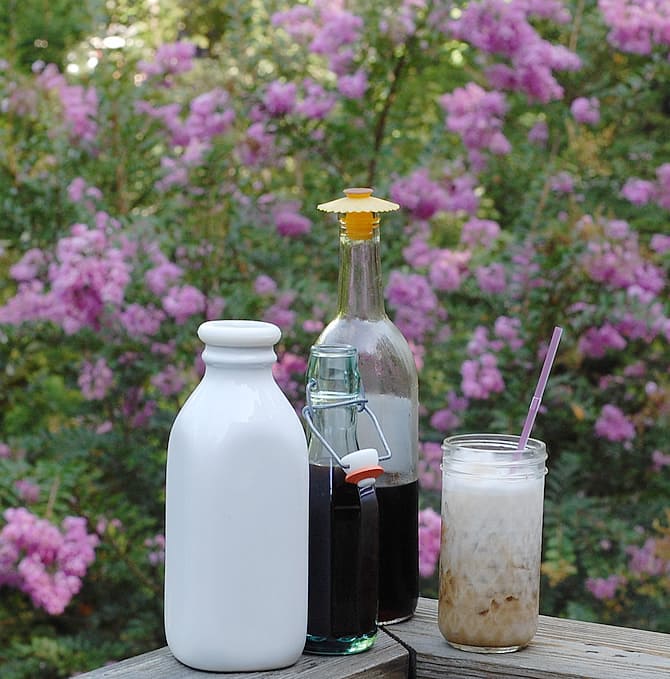
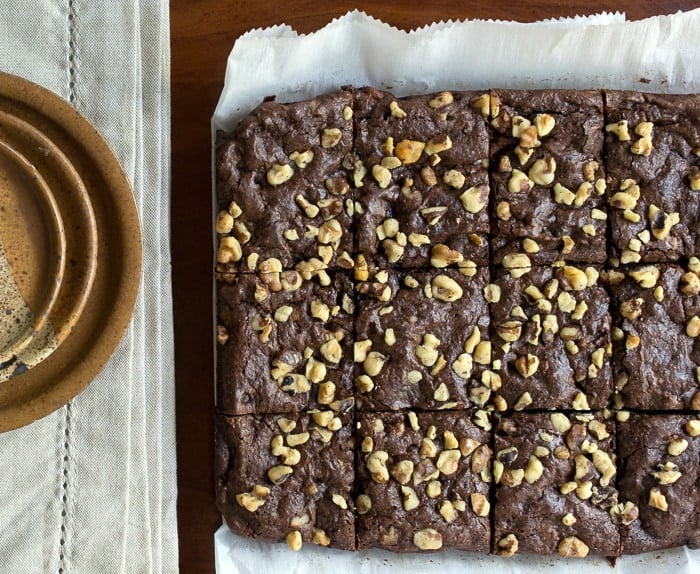

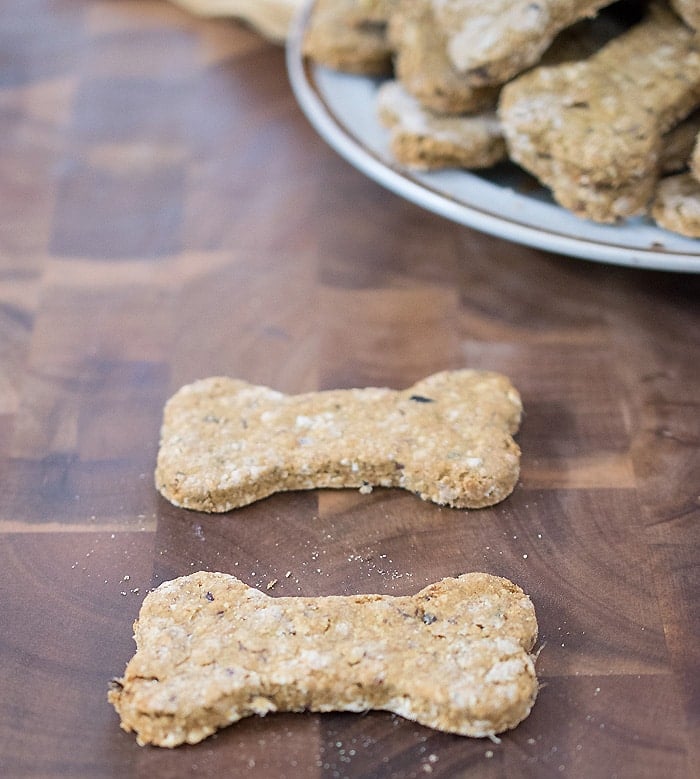
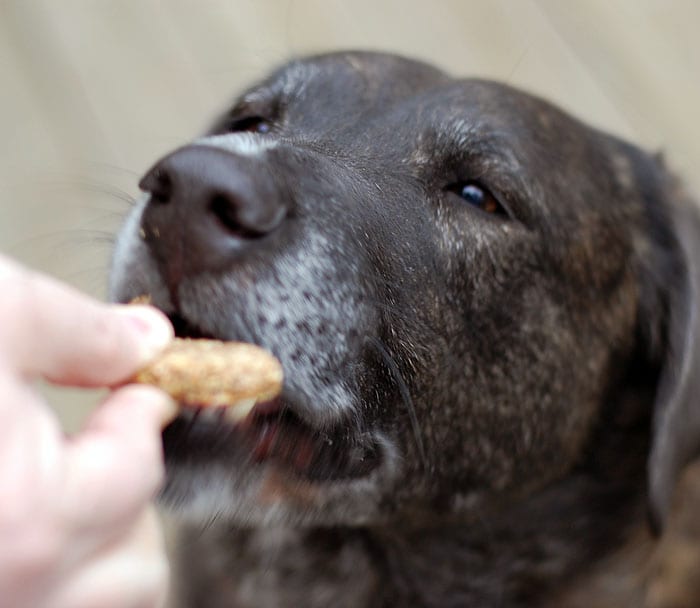
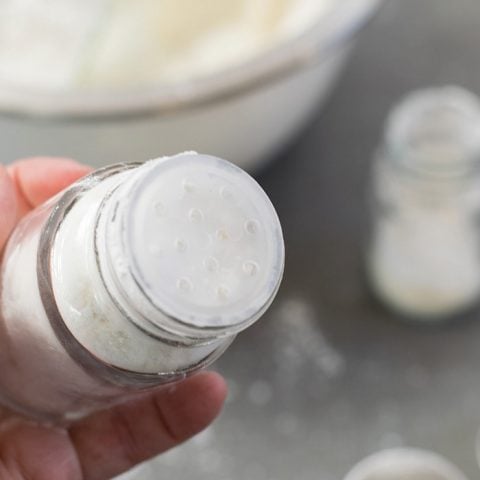
Last-Minute Holiday Gift: DIY Body Powder
Look no further than your pantry to make the easiest present ever - body powder! Add in some essential oils and/or baking extracts and you can make any scent that you want.
It's great for holidays, birthdays, and you can even make unscented baby powder for a perfect new mother gift!
Ingredients
- 3 cups arrowroot or cornstarch
- 1/2 cup baking soda
- 1 teaspoon peppermint extract, optional
- 3/4 teaspoon eucalyptus essential oil or other essential oil, optional
Instructions
- Mix everything but the essential oils or baking extract together.
- Add essential oils or baking extracts little by little until it's the strength and blend you want - or follow the recipe as is.
- Put into gift bottles.
Recommended Products
As an Amazon Associate and member of other affiliate programs, I earn from qualifying purchases.
Nutrition Information
Yield 10 Serving Size 1Amount Per Serving Calories 89Total Fat 2gSaturated Fat 0gTrans Fat 0gUnsaturated Fat 2gCholesterol 0mgSodium 3031mgCarbohydrates 17gFiber 1gSugar 0gProtein 2g
Nutrition information is provided from nutritionix.com as a close estimate. If you have specific health issues please put the recipe information, including the exact ingredients you use, into the nutritional calculator your Dr. recommends.

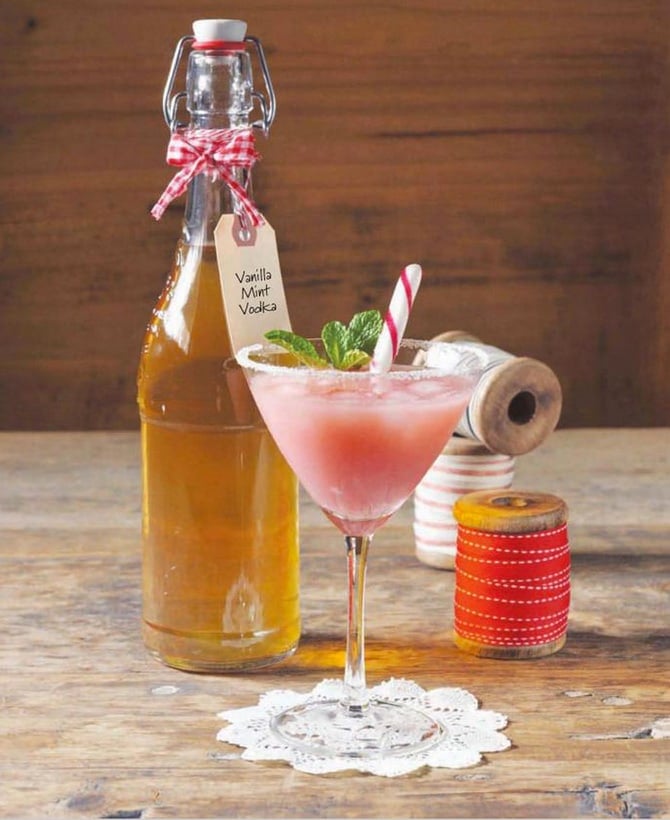
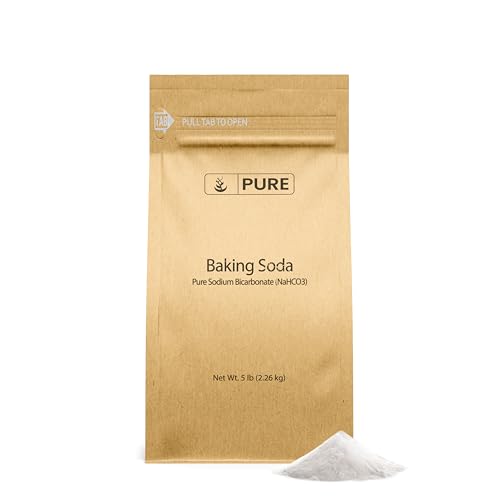

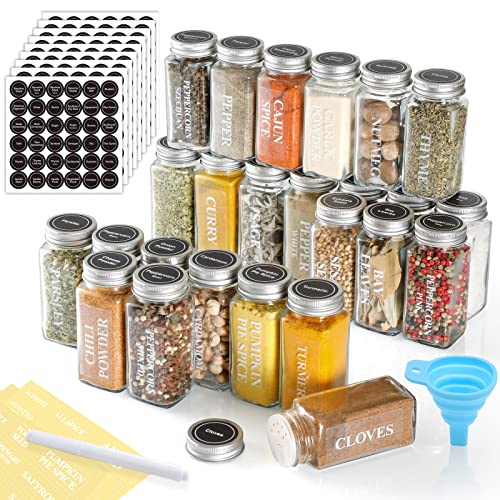
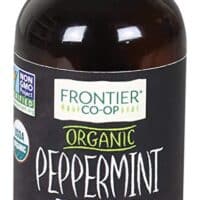


Lori Hickey says
I absolutely love the one I got in Chicago at the food swap. Now I assume that was from you! It’s getting low and I am so excited to now be able to make more! Thanks for the recipe and the great gift giving idea!
Kathy Hester says
That’s wonderful to hear! Now you’ll never run out again 😉
brandie says
Perfect!! Thank you for the recipe. We’re making this tonight and gifting tomorrow 🙂 the teachers will smell good 😀
Kathy Hester says
Yay!!
Francesca says
Hello lovely! Thank you so much for being part of my “20 gifts you can make this holiday season” roundup
at
I’m definitely going to give your DIY body powder a try 🙂
Happy holidays! ♥
Donna Steward says
I’ve been looking for a way to make my own body powder for years. Now I can make it any scent I want, too. Absolutely love this! Thank You
Lisa says
Do you know of any reason that it would not be safe to add magnesium hydroxide powder to this deodorant powder? I find it to be EXTREMELY effective in fighting armpit odor but I’m having trouble finding safety information on the powdered for of magnesium.
Kathy Hester says
I wish I had a better answer for you, but I have no idea if it’s safe or not. I do use a crystal deodorant and I love it.